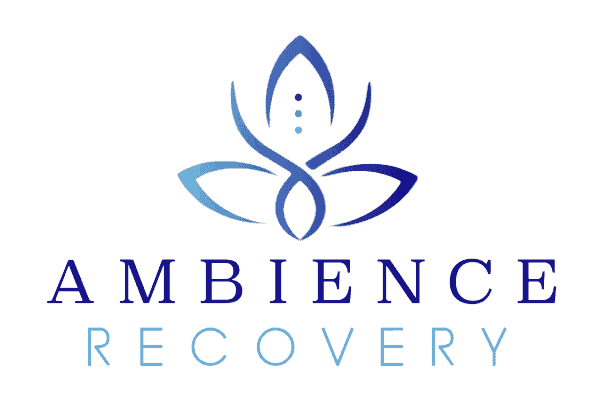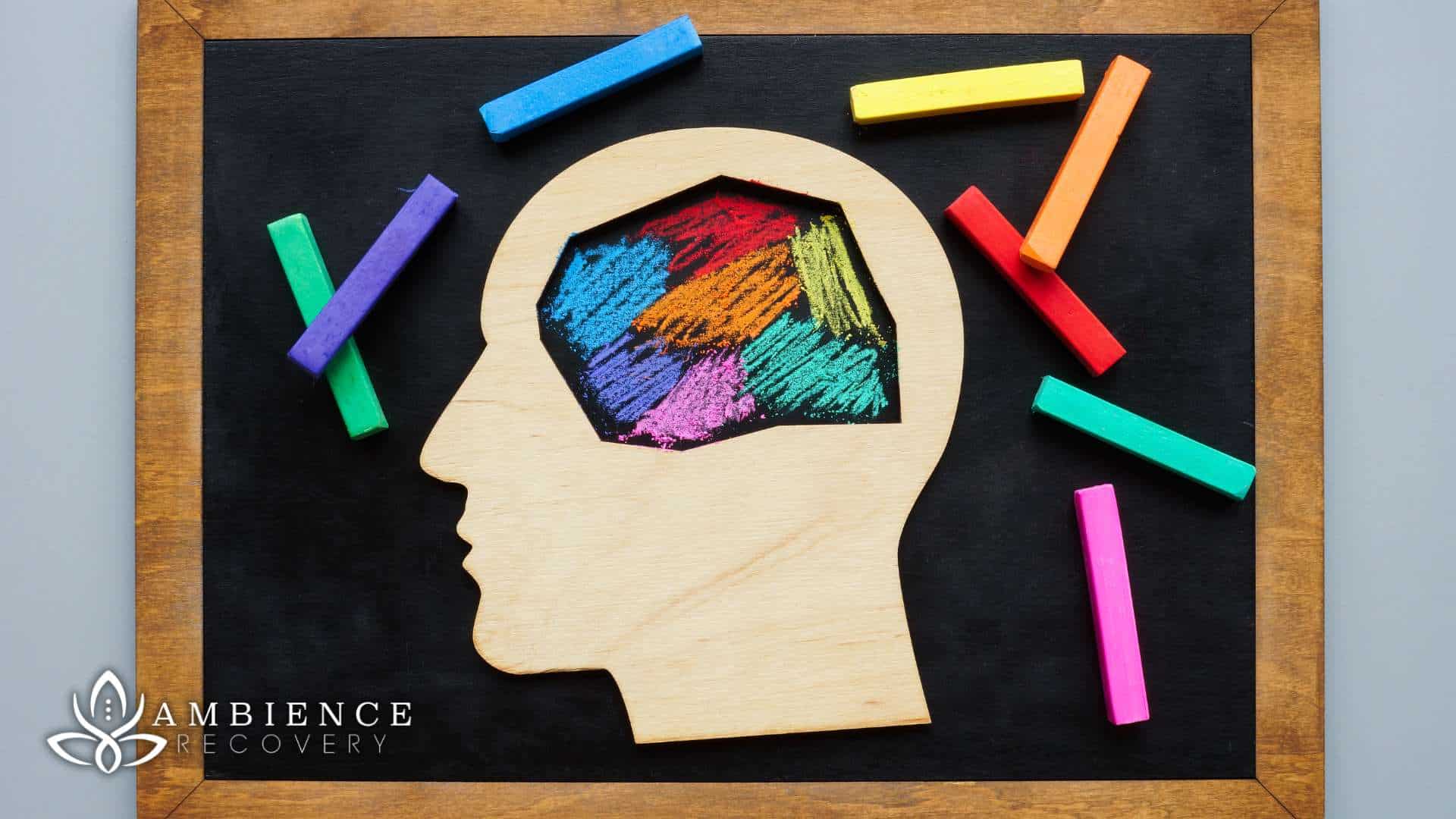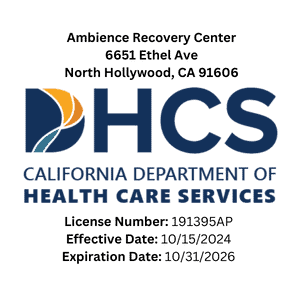Key Takeaways
-
People with high-functioning autism may face a higher risk of addiction.
-
Mental health challenges and sensory issues can increase this risk.
-
Addiction may look different in autistic individuals.
-
Personalized treatment is key for lasting recovery.
-
Ambience Recovery offers support for people with co-occurring autism and addiction.
Introduction
Autism is a developmental disorder that affects how a person thinks, feels, and interacts with the world. Some people with autism are considered “high-functioning.” This means they may have average or above-average intelligence and can speak clearly, but they still struggle in everyday life.
Now, here’s something most people don’t talk about: the connection between autism and addiction.
Autistic people, especially those with high-functioning autism, may be at greater risk of addiction. And yet, this link is often overlooked. Understanding this connection can help people get the care they need—and it can save lives.
Let’s explore how autism and addiction are connected and what treatment options are available.
Understanding High-Functioning Autism
High-functioning autism isn’t an official medical term, but it’s often used to describe people with autism who don’t have intellectual disabilities.
They might do well in school or work. They may seem like they’re “fine” on the outside. But they often deal with major challenges, like:
-
Trouble understanding social cues
-
Intense focus on certain topics
-
Sensory problems (like being overwhelmed by lights, noise, or touch)
-
Anxiety, depression, or loneliness
These challenges are real—even if they’re not always obvious.
Why Autistic Individuals May Be at Higher Risk of Addiction
Autistic individuals often feel different. Many struggle to fit in. Some feel lonely or anxious much of the time.
Because of this, they may turn to alcohol or drugs as a way to cope. It helps them feel calmer or more accepted—at least for a little while. This is called self-medicating.
There are other reasons why autistic people may be more likely to develop an addiction:
-
Alexithymia – trouble understanding or describing emotions
-
Sensory overload – trying to numb uncomfortable feelings
-
Peer pressure – wanting to fit in, especially in young adults
-
Undiagnosed autism – many adults don’t find out they’re autistic until after entering addiction treatment
People with autism don’t always respond to substances the same way as others. That’s why understanding their needs is so important.
Common Types of Addiction in Autistic Individuals
When people think of addiction, they often think of alcohol or drugs. And yes, these are common among autistic individuals too. But behavioral addictions also play a big role.
These might include:
-
Video gaming
-
Internet or social media
-
Gambling
-
Eating or food-related addictions
Someone with autism might fixate on these behaviors to escape stress or feel in control. Over time, this can become harmful.
Even “mild autism” can lead to serious addiction-related problems if not addressed.
The Co-Occurring Nature of Autism and Substance Use Disorders
When a person has two conditions at the same time, it’s called a co-occurring disorder.
Autism and addiction often go hand in hand. Why?
Because many of the traits that come with autism—like anxiety, repetitive behaviors, and sensory needs—can also show up in people struggling with addiction.
This can make it hard to tell where one issue ends and the other begins. That’s why dual-diagnosis treatment (helping both autism and addiction) is so important.
Signs That May Indicate Addiction in Autistic People
Addiction might not look the same in someone with autism. They may not show the “classic” signs.
Here are some clues to watch for:
-
Sudden changes in routine or behavior
-
More isolation than usual
-
Masking (pretending to be “normal” while struggling inside)
-
Mood swings or irritability
-
Changes in speech or eye contact
Parents, caregivers, and teachers may miss the early signs. That’s why it’s key to look closely and listen carefully.
Challenges in Treating Patients with Co-Occurring Autism
Most addiction treatment programs aren’t designed for autistic individuals. That’s a big problem.
Many patients with autism may feel uncomfortable in group therapy. They might struggle to express their emotions or understand certain therapy techniques. Bright lights, loud noises, or touch can be overwhelming.
Also, if autism hasn’t been diagnosed, the person may not even know why they feel so out of place.
This can lead to frustration, relapse, or leaving treatment early. That’s why treatment must be autism-informed and sensitive to these unique needs.
Effective Treatment Approaches for Autism and Addiction
Good treatment focuses on the whole person. It should be calm, safe, and respectful of sensory needs.
Here’s what works best:
-
Customized care – plans built around the individual
-
Therapies for neurodiverse minds – like Cognitive Behavioral Therapy (CBT) or Dialectical Behavior Therapy (DBT)
-
Motivational interviewing – helps the person build their own goals
-
Family involvement – educating and supporting loved ones
-
Long-term support – building habits that reduce relapse risk
Recovery is possible—with the right help.
Conclusion
The connection between high-functioning autism and addiction is often misunderstood. But now, we know more. People with autism are at a higher risk for addiction. And yet, they often don’t get the support they need.
We must do better. At Ambience Recovery, we understand the unique needs of people with autism and substance use challenges. We offer care that’s personalized, respectful, and designed to heal both body and mind.
If you or someone you love is struggling, call Ambience Recovery at 866-721-7470. Help is here—and recovery is possible.
FAQs About The Connection Between Autism and Addiction
What is the connection between autism spectrum disorder and addiction?
The connection between autism spectrum disorder and addiction lies in the increased risk factor for substance abuse among individuals with autism. Many individuals with autism may struggle with social interactions and communication, leading to a higher likelihood of using drugs or alcohol as a coping mechanism.
What are the signs of autism that may indicate a risk of addiction?
Signs of autism that may indicate a risk of addiction include difficulties in social situations, sensory sensitivities, and challenges in emotional regulation. These factors can lead individuals with autism to seek substances to manage their feelings or fit in socially.
How can understanding autism help in addiction treatment?
Understanding autism is crucial for effective addiction treatment, as it allows therapists to tailor their approaches to meet the specific needs of individuals with autism. This understanding can help in addressing the underlying causes of substance use-related problems and provide appropriate support.
Are individuals with autism more likely to develop substance addiction?
Yes, individuals with autism spectrum disorder are at a higher risk of developing substance addiction. The unique challenges faced by many autistic individuals can lead them to engage in drug or alcohol use as a form of escapism or self-medication.
What types of autism are associated with a higher risk of addiction?
While all types of autism can be associated with a higher risk of addiction, adults with autism and those diagnosed with mild autism may show particular vulnerability due to social isolation and difficulties in managing daily stressors.
How can a child with autism be supported to overcome addiction?
Supporting a child with autism to overcome addiction involves a combination of therapy in autism, family support, and tailored addiction treatment services. It is essential to address both the autism symptoms and the addiction concurrently to ensure effective recovery.
What role does the autism community play in addressing addiction issues?
The autism community plays a vital role in raising awareness about the link between autism and addiction. By providing resources, support networks, and education, the community helps individuals with autism and their families navigate the challenges of addiction.
What therapy in autism can help prevent substance abuse?
Various therapies in autism, such as cognitive-behavioral therapy (CBT) and social skills training, can help individuals develop coping strategies and social skills, reducing their risk of substance abuse by providing healthier outlets for their emotions and challenges.
What are some common misconceptions about people with autism and addiction?
A common misconception is that individuals with autism cannot have addiction problems. In reality, people with autism can experience substance use-related problems just like anyone else. Understanding the unique challenges faced by these individuals is crucial in addressing their needs effectively.
Resources
https://www.sciencedirect.com/science/article/pii/S0010440X23000305
https://docs.google.com/document/d/1X6ML0j4VCGrmHwLfU5-eAyZ_BQ8pD-qB4YWXYMGaoNQ/edit?tab=t.0
https://pmc.ncbi.nlm.nih.gov/articles/PMC9019324/
Katie is a Licensed Clinical Social Worker who has worked as a primary therapist, supervisor, and now clinical director for SUD/MH treatment centers for the past 12 years. Katie is trained in Brainspotting, EMDR, Internal Family Systems and Dialectical Behavior Therapy and is passionate about treating substance use disorders, trauma and grief.






